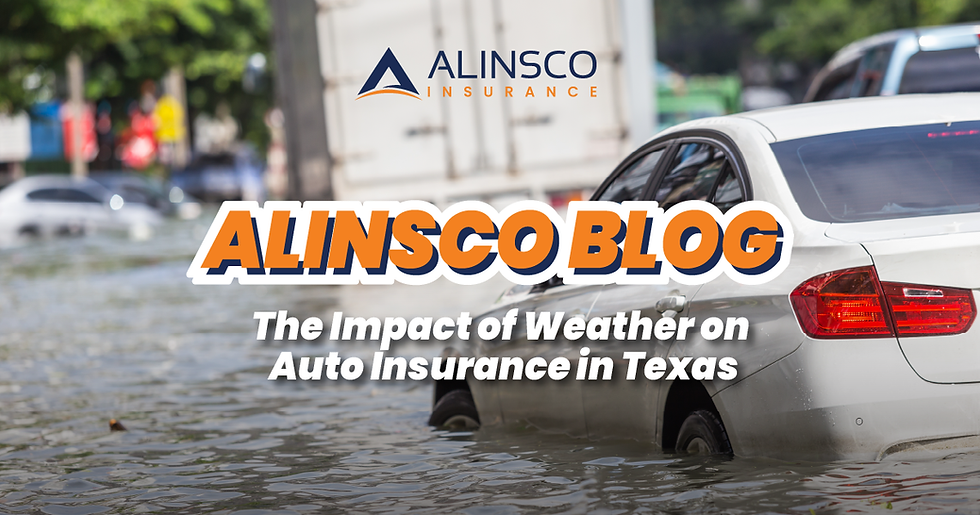Understanding Auto Insurance: Collision vs. Comprehensive Coverage
- Alinsco Agency

- Mar 13, 2024
- 2 min read

Auto insurance can sometimes feel like navigating a maze of jargon and policy options. Among the most important distinctions are collision and comprehensive coverage. Let's break down the differences to help you make informed decisions about protecting your vehicle.
Collision Coverage: Protecting Against Accidents
Collision coverage is straightforward—it covers damages to your vehicle resulting from collisions with another vehicle or object, regardless of fault. Whether you collide with another car, hit a tree, or crash into a building, collision insurance steps in to cover the cost of repairing or replacing your vehicle, minus your deductible.
Comprehensive Coverage: Beyond Collisions
Comprehensive coverage extends beyond collisions to protect your vehicle from non-collision-related incidents. This includes damages caused by theft, vandalism, fire, natural disasters (such as hail or floods), falling objects, and encounters with wildlife (like hitting a deer). Essentially, comprehensive insurance safeguards your car from a wide range of unforeseen events that are beyond your control.
Key Differences: Collision vs. Comprehensive
Coverage Scope: Collision insurance covers damages resulting from collisions with vehicles or objects, while comprehensive insurance covers damages from non-collision incidents.
Types of Incidents: Collision coverage applies to accidents involving other vehicles or stationary objects, while comprehensive coverage applies to incidents like theft, vandalism, or natural disasters.
Fault Consideration: Collision coverage applies regardless of fault in the accident, whereas comprehensive coverage applies regardless of fault in the incident (e.g., theft or vandalism).
Choosing the Right Coverage for You
When deciding between collision and comprehensive coverage, consider factors such as your vehicle's value, your driving habits, and your risk tolerance. If you lease or finance your vehicle, collision coverage may be required by your lender. Conversely, if you live in an area prone to theft or natural disasters, comprehensive coverage offers valuable protection against these risks.
The Bottom Line
In summary, collision insurance protects against damages from collisions with vehicles or objects, while comprehensive insurance covers damages from non-collision incidents. Understanding the differences between these coverages allows you to tailor your auto insurance policy to your specific needs, providing peace of mind on the road. Consult with your insurance agent to determine the optimal coverage for your vehicle and driving habits.
With this knowledge in hand, you can navigate the world of auto insurance with confidence, ensuring that you have the right protection for whatever the road may bring.
Note: This blog provides a general overview of comprehensive and collision coverage. Insurance policies vary, so please consult your policy or contact us for specific details and advice. This content is for informational purposes only and does not constitute legal or insurance advice.



Comments